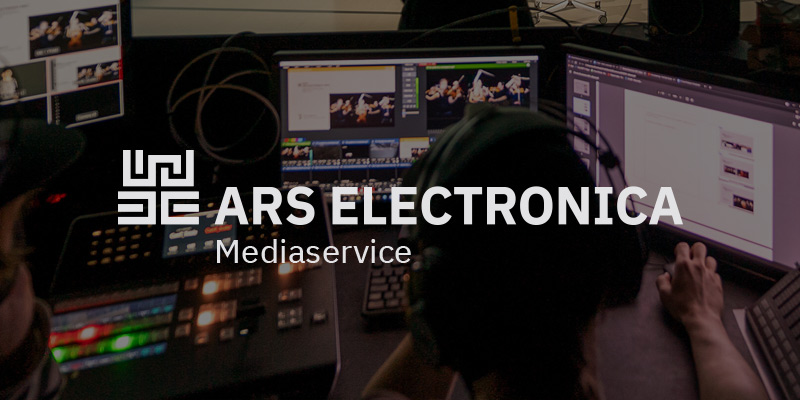Focal-Point Theme: Virtual Worlds, New Realities
Friday, April 6, 2018 / 1-5 PM; Saturday & Sunday, April 7-8, 2018 / 10 AM-6 PM
Otelo Futurespace – the digital playground / Ars Electronica Blog
Virtual Realities in Gaming / Ars Electronica Blog
Virtual Worlds – New Realities / Ars Electronica Blog
(Linz, April 4, 2018) The “Virtual Worlds, New Realities” themed weekend is a setting for new experiences of reality, and for amalgamations of the physical world we inhabit and the digital domains that are being conjured up in our midst by the emergence of Virtual and Augmented Reality. Who’s already working with these new technologies, what are some examples of practical applications, and why are artists so fascinated by the creation of virtual worlds?
A Deep Space LIVE about new applications and collaborative efforts in the VRLab as well as talks by experts and workshops on Deep Space Weekend will provide insights into these questions.
Deep Space LIVE: Virtual Worlds – New Realities
Thursday, April 5th / 7-8 PM
The encounter with the weekend’s focal-point theme will already begin with a Deep Space LIVE on Thursday, April 5th at 7 PM, when Christoph Anthes, Professor of Augmented and Virtual Reality at the Upper Austria University of Applied Sciences’ Hagenberg Campus, will offer an overview of current projects and possible future scenarios in the field of virtual reality. Plus, an artists’ collective named Depart will present The Lacuna Shifts, a VR application that immerses users in virtual spaces featuring modifiable architecture. Another presentation by Hagenberg developers will showcase The House of Medusa, a virtual reconstruction of archeological excavations in Enns, Austria.
Themed Weekend: Overview of Virtual Worlds – New Realities
Friday, April 6 / 1-5 PM; Saturday & Sunday, April 7-8 / 10 AM-6 PM
Program overview:
Hybrid Spaces for Play: Virtual and real spaces for art, culture and gaming
Saturday, April 7 / 3 PM, with Jürgen Hagler
The availability of affordable yet high-performance visualization technologies in the field of Virtual and Augmented Reality promises a whole series of new deployment possibilities but also faces users with new challenges. The Playful Interactive Environments research group at the Hagenberg Campus will present fun, artistic installations as examples of new concepts for several individuals to interact and work together in hybrid worlds.
Otelo Futurespace – the digital playground
Friday, April 6 / 1-5 PM; Saturday & Sunday, April 7-8 / 10 AM-6 PM both days
Otelo Futurespace – the digital playground addresses multifarious aspects of the subject of digitization and serves as a setting for organized play that immerses participants in digitally networked worlds of living and working. Interlinked labs provide insights into digitized work and preparation for participation in a collaborative event—the Robo-Challenge, an assignment that can be carried out only by means of speedy, intensive collaboration, sharing knowledge and experience, and using all the labs. In cooperation with Otelo eGen.
3-D Bodyscanner: Infabity
Friday, April 6 / 1-5 PM; Saturday & Sunday, April 7-8 / 10 AM-6 PM both days
Haratech GmbH is a company specializing in a combination of 3-D scanning and 3-D printing. Its My Twiin bodyscanner makes it possible to analyze the shape and makeup of a scanned person. The result is a personal virtual three-dimensional model sent directly to the installation visitor’s cell phone.
Workshop: V4 – Introduction
Saturday, April 7, 2-5 PM / Seminar Room
Mandatory preregistration: call 0732.7272.51 or e-mail to center@aec.at
Artist Jürgen Ropp will give workshop participants an introduction to VVVV software that enables users to design real-time-influenced graphics and/or digital objects. Artists use this program to generate works of media art. To behold a beautiful example of this and to see what this program is capable of, access Jürgen Ropp’s VR application LOGIN in VRLab.
VRLab Presentation
Friday, Saturday & Sunday, April 6-8; 11:30 AM, 2:30 & 4:30 PM
What actually is virtual reality and what can you experience in it? How did this technology develop, what’s the current state of the art, and where might developments be proceeding the future? The best way to get answers to these questions is by attending presentations in the VRLab and immersing yourself in virtual worlds. But be sure not to get mixed up about what’s real and what isn’t! In the VRLab, that’s a real challenge sometimes …
Photo:
VRLab Ars Electronica Center / Fotocredit: Robert Bauernhansl / Printversion / Album
Photo:
VRLab Ars Electronica Center / Fotocredit: Florian Voggeneder / Printversion / Album

